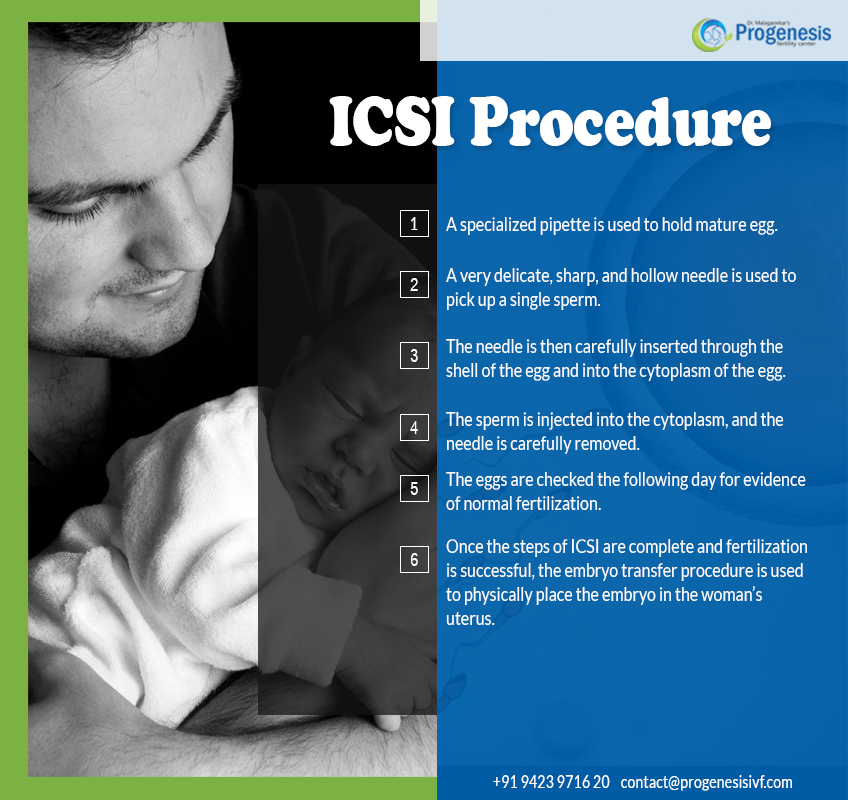ICSI or intracytoplasmic sperm injection is an alternate reproductive procedure to assist the unfortunate infertile couples who cannot give birth naturally. Here are some facts about it that might help you understand more about ICSI treatment. Read on
- As is evident by the name, intracytoplasmic sperm injection is the process of transferring a single sperm cell directly into the cytoplasm of the egg or gamete of a female to induce the process of fertilisation. It is an IVF procedure mainly used in cases of male infertility or in the process of surrogacy to facilitate fertilization between the sperm and the egg cells for the further child development process.
- In this process, the normal acrosome reaction process is skipped and the sperm cell is made to fertilise the egg cell directly so that the female gamete is prepared to form a zygote and transferred to the maternal uterus for further childbirth process.
- Only one sperm cell is involved per oocyte cycle which further fertilises the egg cell to form a zygote that later on develops to be a foetus inside a normal female’s womb. As only one sperm cell is involved in the process, the chances of a successful pregnancy entirely depend on the healthiness of that sperm only.
- As the sperm cell is picked by the experts after making it go through several tests and treatments, the chances of it being highly healthy and effective in fertilising the egg cell always prevails. Therefore the success rate of ICSI treatment is around 80 to 85 per cent in recent times.
- The egg or sperm retrieval process is generally completed within half a day’s time. After that, the fertility expert can ask you to come back again within a few days for the embryo transfer process. The entire ICSI cycle takes almost around 4-6 weeks to be completed entirely.
After the process gets over, you can do a pregnancy test to confirm your pregnancy after 2-3 weeks in your fertility expert’s clinic. The process is different from the other IVf treatment in the way that in ICSI treatment, you don’t need hundreds and thousands of sperms to fertilise the egg as there is no need of an acrosome reaction.

